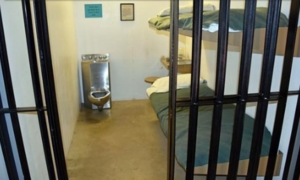What is DUI Probation?

DUI probation (called “DUI community control” in some states) is a chance to remain out of jail after a DUI conviction but on restricted terms and conditions like “no use of alcohol at all”. A judge gives a probated sentence to a person convicted of DUI instead of him or her being sent to jail or prison. DUI Probation instead of straight DUI jail time is a matter of the judge’s discretion. Often a DUI sentence is “part jail time with the balance to be served on probation”. Violation of probation terms will usually result in a revocation of probation. This means you will be sent to jail for all or part of your remaining probation term.
“Intensive probation” is a term used to describe very strict and harsh reporting and compliance for repeat DUI offenders (LINK: How Prior DWI Offenses Affect Your Case). Many courts are starting to utilize intensive probation to control every aspect of repeat DUI-DWI offenders’ lives. Compliance with all of these terms is extremely difficult for some repeat DUI offenders (LINK: How Prior DWI Offenses Affect Your Case), due to a loss of work time and the inability to drive a vehicle in many cases.
DUI Probation Revocation
DUI probation should be considered a gift from a judge since he or she could have sent you to jail for the entire sentence. Typically, probation is a non-jail alternative as long as you comply with all of the following probation conditions:
• Pay fines and do all other conditions such as community service
• Attend DUI school
• Get alcohol and drug evaluations and treatment
• Not violate any laws while on probation
• Abstain from drinking any alcohol
• Follow through with any other court-ordered conditions
• Report regularly to your probation officer
If you violate any of your probation terms, your probation can be revoked. Also, if you fail to pay the required monthly probation fees, the court can revoke probation. All or part of this is done at a probation revocation hearing before the judge who sentenced you. At this hearing, evidence of the violation must be presented. If you dispute this violation, you can present documentary evidence or testimony at this hearing to refute the claimed violation.
One of the challenges your highly-specialized DUI attorney (LINK: USA Map) may be able to assert is that the alleged acts triggering the revocation petition are “unrelated” to the crime for which you are serving the probated sentence. The amount of proof at these probation revocation hearings is much less than for a criminal conviction. If you lose this hearing, you may spend the remaining time of your probated sentence in jail or some other form of detention.
Probation Revocation vs. Parole Revocation
DUI probation is not the same as “DUI parole,” which is a term describing “conditional” freedom after a lengthy jail term under certain restrictions. Parole refers to the jail release given to convicted felons at or near the end of their imprisonment period. If you violate your parole and face parole revocation, you are definitely going back to prison. BUT you still need expert legal representation to minimize time incarcerated. While you still can, pick up the phone and call a well-known DUI lawyer in your area. Your initial consultation is FREE. Call 888-8DWI-DUI (888 839 4384) anytime day or night.
1-844-TEAM-DUI (1-844-832-6384)Find a DUI lawyer near you – click on your state.
Copyright 2025. William C. Head. All Rights Reserved.